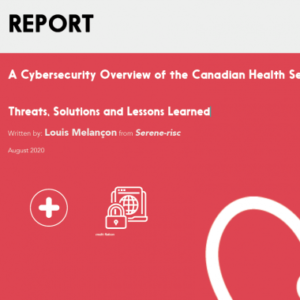With fast moving innovations in technology, cyber security threats and incidents continue to grow in number and sophistication. The need to measure, analyze, and better understand these incidents is imperative for businesses, policymakers, and other stakeholders to effectively manage the risks of cyber threats, vulnerabilities and incidents. This is recognized not only in Canada but has become a focus of measurement for organizations such as the OECD as well. While high-profile cyber security incidents affecting large enterprises are frequently covered in the media, little is known of how cyber security risks affect the overall business population in Canada. This presentation explores the results from the 2017 Canadian Survey of Cyber Security and Cybercrime and the ongoing effort at Statistics Canada to measure the cyber security practices of Canadian businesses and the overall impact of cybercrime on the Canadian economy.
The slide of the presentation are also available here.
About the speakers
Mohammad Lari is an Economist at Statistics Canada where he focuses on measuring the impact of cybercrime on Canadian businesses. He is also working with the OECD Working Party on Security and Privacy to collect comparable data across member countries.
Mark Uhrbach is the Program Manager of the Digital Economy Metrics section at Statistics Canada, which examines how Canadians and Canadian firms are impacted by cybercrime, emerging technologies, and the Internet. Mark currently chairs the Working Party on Measurement and Analysis at the OECD and is leading a sub-group to develop ICT Skills indicators for the International Telecommunications Union.



